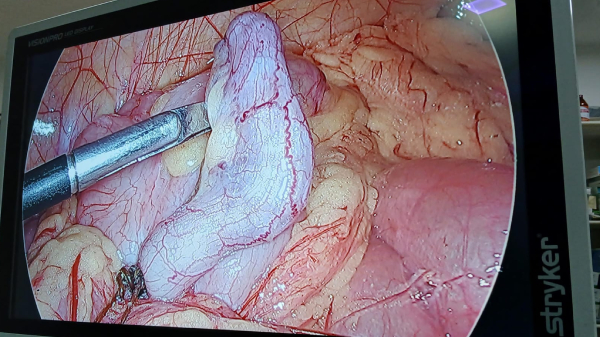Appendix Surgery
- Home
- /
- Appendix Surgery

Appendix Surgery
Dr. Soham, an experienced general surgeon, offers expert care in the diagnosis and surgical treatment of appendicitis, a common and urgent medical condition where the appendix — a small, finger-like pouch attached to the large intestine — becomes inflamed and infected. If left untreated, it can rupture and lead to serious complications like peritonitis or abscess formation.
Causes and Symptoms of Appendicitis
Appendicitis often occurs when the appendix is blocked by stool, a foreign body, or infection, leading to swelling and infection. Common symptoms include:
Sudden pain in the lower right abdomen
Loss of appetite
Nausea and vomiting
Fever
Abdominal bloating
Inability to pass gas
As the infection worsens, the pain may intensify and spread, requiring immediate medical attention.
Diagnosis
Dr. Soham conducts a thorough clinical examination and may recommend diagnostic tests such as ultrasound, CT scan, and blood tests to confirm the diagnosis of appendicitis.
Surgical Treatment (Appendectomy)
The standard and most effective treatment for appendicitis is appendectomy — the surgical removal of the appendix. Dr. Soham performs two types of surgeries based on the patient’s condition:
Laparoscopic (Keyhole) Appendectomy
A minimally invasive procedure involving small incisions and a camera, offering faster recovery, minimal scarring, and less postoperative pain.Open Appendectomy
In cases where the appendix has ruptured or severe infection is present, an open surgery may be required for better access and infection control.
Post-Surgery Care
After surgery, most patients recover quickly, especially with laparoscopic procedures. Dr. Soham provides post-operative care instructions, including pain management, wound care, and activity guidelines to ensure a smooth recovery.


